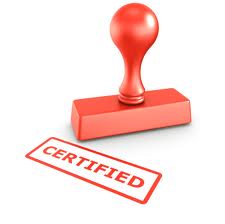 Forget Keynesian Economics, I’ve discovered TimeSuckian Certificreditational Standards.
Forget Keynesian Economics, I’ve discovered TimeSuckian Certificreditational Standards.
Ever since the newly-formed World-Voices Organization proferred it’s suggested Rules for Best Practice for Voice-Actors, Coaches, and producers…the emails and phone calls have been pouring in.
The response has been 98% positive, constructive, and contributory. Incisive, probing questions are being asked. A healthy debate is ongoing. Early documents are being re-written. Fundamental philosophical tenets are being challenged and weighed.
WHITHER CERTIFICATION?
But wait a minute… isn’t it true that certification really only passes those who are good at mastering the certification test? You get what you measure for. The real issue of A subjective appraisal system is not system’s subjectivity but the lack of trust between talent and client.
Why, then, is the interest level in World-Voices.org so off-the-charts? Could it be that voice actors are suffering an identify crisis, and still yearn for the legitimacy that comes with certified teachers, accountants, welders, nurses, social workers, and truck drivers?
An example: I’ve always been painfully aware that any list of accredited professions does NOT include Journalism, and now those who call themselves professional journalists find themselves having to constantly defend, define, and deflect questions about their standards. Are Bloggers journalists? Is Julian Assange (WikiLeaks) a journalist? Do I qualify for claiming the title journalist after 30 years in broadcast TV news? I’ve never taken a journalism course in my life, and graduated with a degree in something totally different. Yes, I think journalism could use Certificreditation.
Here’s a link to an organization offering to certify you in Social Media! Who set THEM up as experts?
ADVANTAGES OF CERTIFICATION
I’ve found the following list useful. I gleaned it from Credentialing Talk.
THE VALUE OF CERTIFICATION:
For the sponsoring organization:
Standardized practice and/or standards within an industry
Advances the specialty/field and increases cooperation between organizations in the same discipline
Provides means to establish and enforce an ethical code
Provides a means for an industry to self-regulate
For the certificants:
Recognition by a third party
Credibility
Enhances professional reputation
Personal accomplishment
Supports continued professional development
Demonstrates a high level of commitment to the field of practice
Demonstrates a certain level of knowledge and skill
Increases opportunities for career advancement and/or increased earnings
Increases and/or validates skills and knowledge
Meets employer or governmental requirements
For employers:
Improved customer satisfaction
Increased safety (in applicable industries)
Increased competence level of employees
Used in making employment decisions
Provides professional development opportunities for employees
Ongoing enhancement of knowledge and skills
Increased confidence in employees abilities
Demonstrates employers commitment to competence
Provides compliance with industry regulation or government requirements
For the public:
Helps in identifying qualified service providers
Increases confidence in service providers
Disciplinary process to follow in case of complaints
Makes you think, eh?
If nothing else, all this talk of certifying the voice-over industry indicates a certain sophistication and maturation of our business. The talent unions (now just one union) failed to ever set much of a standard for voice actors, and yes, the marketplace certainly applies the rules of natural selection to those who enter, but can all this really be a bad thing?
CourVO

